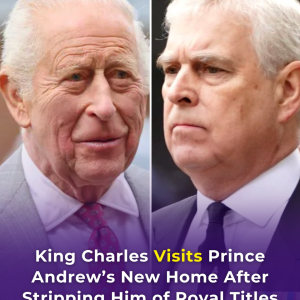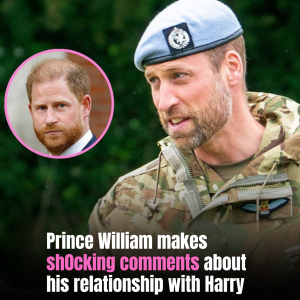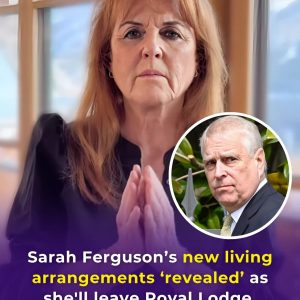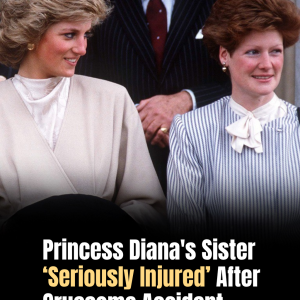
In a statement released by Buckingham Palace, Prince Andrew confirmed that the move was made in consultation with the King and the wider royal household. He said his decision was driven by a desire to protect the monarchy and his family from further distraction.
“In discussion with The King and my immediate and wider family, we have concluded that the continued accusations about me distract from the work of His Majesty and the Royal Family,” the Duke said. “I have decided, as I always have, to put my duty to my family and country first. I stand by my decision five years ago to step back from public life.”
He added that, with the King’s approval, he would cease using titles and honors associated with his royal status. The Duke reiterated his denial of all allegations linked to Epstein and noted that he has never faced criminal charges in relation to the case.
Years of Controversy and Retreat

Prince Andrew’s royal role has been under scrutiny since 2019, when his friendship with Epstein became the subject of global media coverage. His attempt to defend himself in a BBC Newsnight interview that year backfired, leading to Queen Elizabeth II’s approval for him to step down from official duties.
In 2022, Buckingham Palace confirmed that he would return his honorary military titles and royal patronages to the Queen, while continuing to hold no public role. That same year, he settled a civil lawsuit brought by Virginia Giuffre in the U.S. for an undisclosed sum, with no admission of liability.
Life After the Scandal
Since withdrawing from public duties, the Duke has largely kept out of the public eye. He continues to reside at Royal Lodge in Windsor and attends family gatherings but has not carried out engagements on behalf of the Crown. Royal observers see his latest step as part of King Charles III’s broader effort to protect the monarchy from ongoing controversy and focus on its modernization.
Restoring Public Trust
The move to relinquish his titles is widely viewed as symbolic but significant, underscoring the royal family’s commitment to accountability and transparency. Analysts suggest it fits within King Charles’s vision of a streamlined monarchy, where only working royals represent the Crown.
While Prince Andrew remains a member of the royal family by birth, he will no longer act in any official capacity. The Palace has not commented on whether this decision will affect his security or financial arrangements.
Biographical Insight
Royal historian Andrew Lownie’s recent book Entitled: The Rise and Fall of the House of York examines the Duke’s life and his adjustment to private existence. It also explores the challenges faced by the York family — including Sarah Ferguson and their daughters, Princess Beatrice and Princess Eugenie — amid growing public expectations for transparency from modern royals. Buckingham Palace has declined to comment on the personal claims included in the book.
The Giuffre Case and Its Aftermath

Virginia Giuffre’s lawsuit against the Duke alleged sexual abuse when she was a minor, claims he has always denied. The 2022 settlement avoided a prolonged trial and included a charitable donation to organizations supporting abuse survivors. The case, however, left a deep mark on public perceptions of the Duke and the institution he once represented.
King Charles’s Quiet Leadership
Sources close to Buckingham Palace suggest King Charles handled the matter privately but decisively, reflecting his preference for discretion and resolution over public confrontation. His approach aligns with his wider push to modernize the monarchy and maintain its integrity amid changing public expectations.
A Defining Moment for the Monarchy
Prince Andrew’s withdrawal marks one of the most notable internal shifts for the royal family in recent years. It signals a clear boundary between personal controversy and public duty — a move many see as essential for the monarchy’s continued relevance.
Although he no longer holds royal titles or public roles, the Duke remains present at major family occasions and continues to live quietly in Windsor. His daughters, Princess Beatrice and Princess Eugenie, continue to participate in limited royal and charitable activities.
Ultimately, Prince Andrew’s decision closes a chapter of one of the monarchy’s most difficult modern scandals. It reinforces King Charles III’s focus on transparency, service, and accountability — values that will define the royal family’s path in the years ahead.




